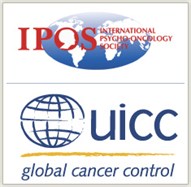September 1, 2011 (View All Issues)
World Conference on Lung Cancer: Personalized Approaches to Treatment
The 14th World Conference on Lung Cancer hosted more than 7,000 attendees in Amsterdam recently, with the theme “Better Care through Personalized Medical Approaches.” The following are brief summaries of key data presented at the conference, with perspective provided by Roy S. Herbst, MD, PhD, of...
Increased Use of Hospital Services Boosts Oncology Spending
For our ongoing series on the rising costs of cancer care, The ASCO Post spoke with Lee N. Newcomer, MD, Senior Vice President of Oncology for UnitedHealthcare. Dr. Newcomer is responsible for improving cost-effective cancer care at the nation’s largest health insurer. He shed light on areas of...
Fixing the Drug Shortage: It’s About Time
I have spent the past 30 years trying to improve the results of treatment for advanced cancer. I had the privilege of working with Sir Michael Peckham when the late Professor Tim McElwain and he were evolving variants of the PVB (cisplatin, vinblastine, bleomycin) and PEB (cisplatin, etoposide,...
A Conversation with Samuel Silver, MD, PhD
 Over the past 2 decades, significant therapeutic advances have led to greater survival rates and quality of life for patients with cancer. During the same period there has been a transformation in the way oncology services are both perceived and delivered. In a recent conversation with The ASCO...
Over the past 2 decades, significant therapeutic advances have led to greater survival rates and quality of life for patients with cancer. During the same period there has been a transformation in the way oncology services are both perceived and delivered. In a recent conversation with The ASCO...
Genomic Researchers Identify Weak Points in Breast Cancer Cells
A large-scale project in genetic profiling has identified weak points in breast tumor cells that not only represent potentially new “druggable” targets but could lead to an entirely new classification of all cancers. The findings were recently reported in Cancer Discovery, a journal of the American ...
Adjuvant Immunotherapy Provides No Clinical Benefit in Patients with High‑risk Renal Cell Carcinoma
For renal cell carcinoma patients at high risk of relapse following nephrectomy, adjuvant therapy with the combination of interleukin-2 (Proleukin), interferon alfa, and fluorouracil (5-FU) provides no survival benefit over observation alone, according to a phase III trial conducted by the European ...
Screening for Ovarian Cancer Does Not Reduce Mortality and Leads to Unnecessary Tests for False-Positives
Using a CA-125 blood test combined with transvaginal ultrasound for early detection of ovarian cancer failed to reduce the risk of mortality associated with the disease and led to a large number of false-positive tests with unnecessary related biopsies and other follow-up procedures in the large,...
Congressional Hearing Highlights Oncology Drug Shortages
Some oncology drugs are in such short supply that the situation is now critical, with almost 200 drugs affected—triple that of 2003. This was the background described by speakers at a July 2011 congressional briefing sponsored by the Association of Community Cancer Centers (ACCC), ASCO, and other...
A Conversation with Constance M. Chen, MD, MPH
Although incidence data vary widely, breast cancer–related lymphedema may affect as many as 54% of the 2.3 million survivors of breast cancer in the United States. The condition is often disabling and can result in both long-term devastating physical consequences for survivors, including the loss...
ASCO Connection Adds New Columnists, Launches Group Creation Option
ASCO’s professional networking site, ASCOconnection.org, continues to build depth in areas of interest to the oncology community, adding as its newest commentator ASCO President Michael P. Link, MD, the Lydia J. Lee Professor in Pediatric Oncology at Stanford University School of Medicine, as well...
Measures of Success for Cooperative Group Reorganization
![]() ASCO continues to work with the NCI and others to transform the Cooperative Group Program through implementation of recommendations of the 2010 Institute of Medicine (IOM) report, “A National Cancer Clinical Trials System for the 21st Century: Reinvigorating the Cooperative Group Program.”
ASCO continues to work with the NCI and others to transform the Cooperative Group Program through implementation of recommendations of the 2010 Institute of Medicine (IOM) report, “A National Cancer Clinical Trials System for the 21st Century: Reinvigorating the Cooperative Group Program.”
Five...
UN Summit to Focus on Noncommunicable Diseases This Month
For the second time since its inception 65 years ago, the United Nations General Assembly is holding a “High-level Meeting” that will focus on health. During the September 19–20 meeting, world leaders will shine a spotlight on the devastation that noncommunicable diseases are causing and have...
ASCO Examines Impact of Health-care Reform on Cancer Care Disparities
 In a new policy statement, ASCO outlines specific provisions of the 2010 Patient Protection and Affordable Care Act that have the potential to reduce cancer care disparities. ASCO’s statement makes recommendations to ensure that such provisions are carried out effectively, and urges additional...
In a new policy statement, ASCO outlines specific provisions of the 2010 Patient Protection and Affordable Care Act that have the potential to reduce cancer care disparities. ASCO’s statement makes recommendations to ensure that such provisions are carried out effectively, and urges additional...
Pick up Cancer.Net Materials for Your Patients at the Breast Cancer Symposium
 Stop by the ASCO booth in the Exhibit Hall at the Breast Cancer Symposium, September 8–10 in San Francisco, to pick up samples of some of the materials Cancer.Net has available for your patients. At the booth, you can learn about the Cancer.Net Guide to Breast Cancer and pick up fact sheets about...
Stop by the ASCO booth in the Exhibit Hall at the Breast Cancer Symposium, September 8–10 in San Francisco, to pick up samples of some of the materials Cancer.Net has available for your patients. At the booth, you can learn about the Cancer.Net Guide to Breast Cancer and pick up fact sheets about...
Circulating Tumor Cell Assay Shows Potential for Predicting Prognosis in Head and Neck Carcinoma
According to the NCI, an estimated 49,260 new cases of oral cavity, pharyngeal, and laryngeal cancers occurred in the United States in 2010, and approximately 11,480 deaths were attributed to these cases. It is estimated that 95% or more of these cases are squamous cell carcinomas. Currently, the...
Research in Combining Targeted Agents Faces Numerous Challenges
If the clinical trials endeavor in oncology is falling short of its goals and if targeted agents have not kept their promise, can a new approach to drug development provide a solution?
 Very possibly, said John Hohneker, MD, Chair of the Workshop Planning Committee for the conference, “Facilitating ...
Very possibly, said John Hohneker, MD, Chair of the Workshop Planning Committee for the conference, “Facilitating ...
Cancer Care in the UK: A Conversation with Chris Parker, MD
 In the contentious debate over rising health-care spending, the cancer care policies of the British National Health Service (NHS) are often cited by U.S. policymakers as an example of how health-care rationing denies patients life-prolonging treatments based on costs. The ASCO Post recently spoke...
In the contentious debate over rising health-care spending, the cancer care policies of the British National Health Service (NHS) are often cited by U.S. policymakers as an example of how health-care rationing denies patients life-prolonging treatments based on costs. The ASCO Post recently spoke...
Experts Address Cancer-related Distress—the ‘Sixth Vital Sign’
 More research is needed to investigate the effects of screening and treatment for distress in cancer care, according to a recent issue of the international journal Psycho‑Oncology. This special edition of the journal includes a review of screening for distress and depression over 40 years in cancer ...
More research is needed to investigate the effects of screening and treatment for distress in cancer care, according to a recent issue of the international journal Psycho‑Oncology. This special edition of the journal includes a review of screening for distress and depression over 40 years in cancer ...
At 5 Years, Brachytherapy Shows Quality-of-life Advantages over Radical Prostatectomy for Favorable-risk Prostate Cancer
Five years after treatment for favorable-risk prostate cancer, men who either chose or were randomly assigned to receive brachytherapy reported quality-of-life advantages in urinary and sexual domains and in patient satisfaction compared to men who received radical prostatectomy, according to a...
Updated Drug Label Approved for Pioglitazone after Safety Review
 The FDA recently approved updated drug labels for pioglitazone (Actos) and other pioglitazone-containing medicines (in combination with metformin, Actoplus Met and Actoplus Met XR; and with glimepiride, Duetact) to include safety information that the use of pioglitazone for more than 1 year may be...
The FDA recently approved updated drug labels for pioglitazone (Actos) and other pioglitazone-containing medicines (in combination with metformin, Actoplus Met and Actoplus Met XR; and with glimepiride, Duetact) to include safety information that the use of pioglitazone for more than 1 year may be...
‘Unrealistic Optimism’ Poses Ethical Challenges, May Affect Informed Consent Process
Does a patient’s optimistic expectation of reaping a health benefit from participating in phase I and phase II oncology studies, even when he understands that these early trials are not designed to provide direct therapeutic benefit, compromise the informed consent process? And, does that...
Identifying Genetic Factors That Predict Response to Chemotherapy in NSCLC
A genetic variation in the chemokine-like receptor 1 (CMKLR1) gene was statistically significantly associated with poor overall survival in patients with non–small cell lung cancer (NSCLC) who were treated with platinum-based chemotherapy with or without radiation. The variation was identified by a ...
Androgen Deprivation Therapy plus Radiotherapy Increases Survival in Men with Localized Prostate Cancer
The addition of short-term androgen deprivation therapy to radiotherapy for men with stage T1b, T1c, T2a, or T2b prostate adenocarcinoma and a prostate-specific antigen (PSA) level of 20 ng/mL or less “conferred a modest but significant increase in the 10-year rate of overall survival, from 57 to...
Neoadjuvant Chemotherapy with CMV Improves Outcome for Invasive Bladder Cancer
Long-term results from a phase III trial show that neoadjuvant chemotherapy with CMV (cisplatin, methotrexate, and vinblastine) improves the outcome for patients with muscle-invasive urothelial cancer of the bladder treated by cystectomy and/or radiotherapy.
“Three cycles of CMV before cystectomy...
Surgical Site Infections after Colectomy More Likely in Obese Patients
Obese patients appear to have a significantly increased risk of developing a surgical site infection after segmental or total colectomy for colon cancer, diverticulitis, or inflammatory bowel disease, and the presence of infection increases the cost associated with the procedure, according to a...
